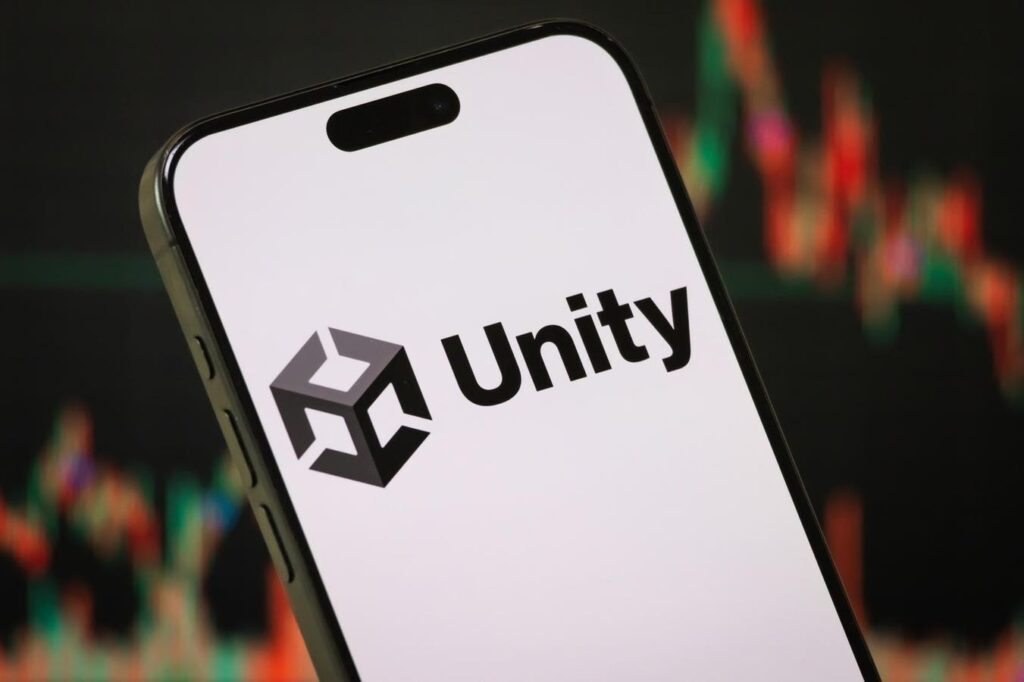Unity Software (NYSE: U) recently announced its Q4 results, reporting a loss of $0.30 per share on $457 million in sales, against consensus estimates of a $0.37 loss per share and $434 million in sales.
Unity’s platform allows developers to create real-time 3D experiences. The company offers AI-enhanced tools that empower creators to develop and scale interactive 2D and 3D content across multiple devices.
Even though its Q1 guidance was below expectations, Unity shares surged 30% to $28 following the announcement of its migration to Vector – a new AI-powered advertising network that boosted investor confidence.
Unity stock has posted a -32% return since early 2024, underperforming the S&P 500 index, which has risen by 28%. A contentious pricing change attempt last year, along with slowing revenue growth, has adversely affected the company’s stock performance. For those seeking an upside with less volatility than a single stock, consider the High-Quality portfolio, which has outperformed the S&P and delivered over 91% returns since inception.
How Did Unity Perform in Q4?
Unity Software’s revenue in Q4 reached $457 million, marking a 25% year-over-year decline. In its segments, Create Solutions sales fell sharply by 47% to $152 million. This drop is partly due to a challenging year-over-year comparison, as the previous Q4 included $99 million from the termination of the Wētā FX agreement. Additionally, the Grow Solutions segment experienced a 5% decline in sales, falling to $305 million.
In Q4, Unity’s adjusted EBITDA margin decreased by 700 basis points year-over-year, reaching 23%. This margin was superior to the company’s expectations, thanks to its cost-control initiatives. The loss per share improved to $0.30, compared to a $0.66 loss per share in the corresponding quarter last year. Looking ahead, the company anticipates near-term challenges, expecting Q1 sales of $410 million, which is below both the consensus estimate of $430 million and the $460 million reported in the previous year’s quarter.
What Does This Mean for Unity Stock?
Following the Q4 results announcement, Unity shares surged by 30%. Nonetheless, such volatility is typical for Unity stock. Over a longer period, the performance of U stock has been highly inconsistent, with annual returns exhibiting far greater volatility than those of the S&P 500. The stock’s annual returns were -7% in 2021, -80% in 2022, 43% in 2023, and -45% in 2024.
In contrast, the Trefis High Quality Portfolio, comprising 30 stocks, exhibits significantly lower volatility. It has also consistently outperformed the S&P 500 over the past four years. Why is that? Collectively, the HQ Portfolio stocks delivered superior returns with reduced risk compared to the benchmark index, resulting in a smoother performance trajectory, as demonstrated by the HQ Portfolio performance metrics.
Considering the current uncertain macroeconomic landscape, marked by potential rate cuts and ongoing conflicts, might Unity stock experience a scenario similar to that of 2021, 2022, and 2024, thereby underperforming the S&P over the next 12 months—or could it rebound? From a valuation standpoint, Unity stock seems to be fairly priced at present.
Trading at $28, Unity stock exhibits a price-to-sales ratio of 6x, which is in line with its three-year historical average. Although recent results were positive, the subdued guidance dampens enthusiasm. Nonetheless, the transition to Vector—its AI-powered platform—offers potential for future revenue growth through improved ad targeting. Considering these mixed factors and the stock trading at its historical valuation multiple, it appears that the current price accurately reflects Unity’s value.
Although Unity stock appears to be fairly valued, it is useful to examine how Unity Software’s Peers perform on key metrics. Additional valuable comparisons across various industries can be found at Peer Comparisons.
Invest with Trefis
Market Beating Portfolios | Rules-Based Wealth
Read the full article here

